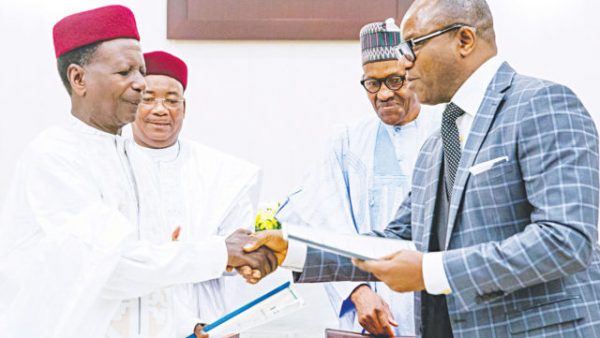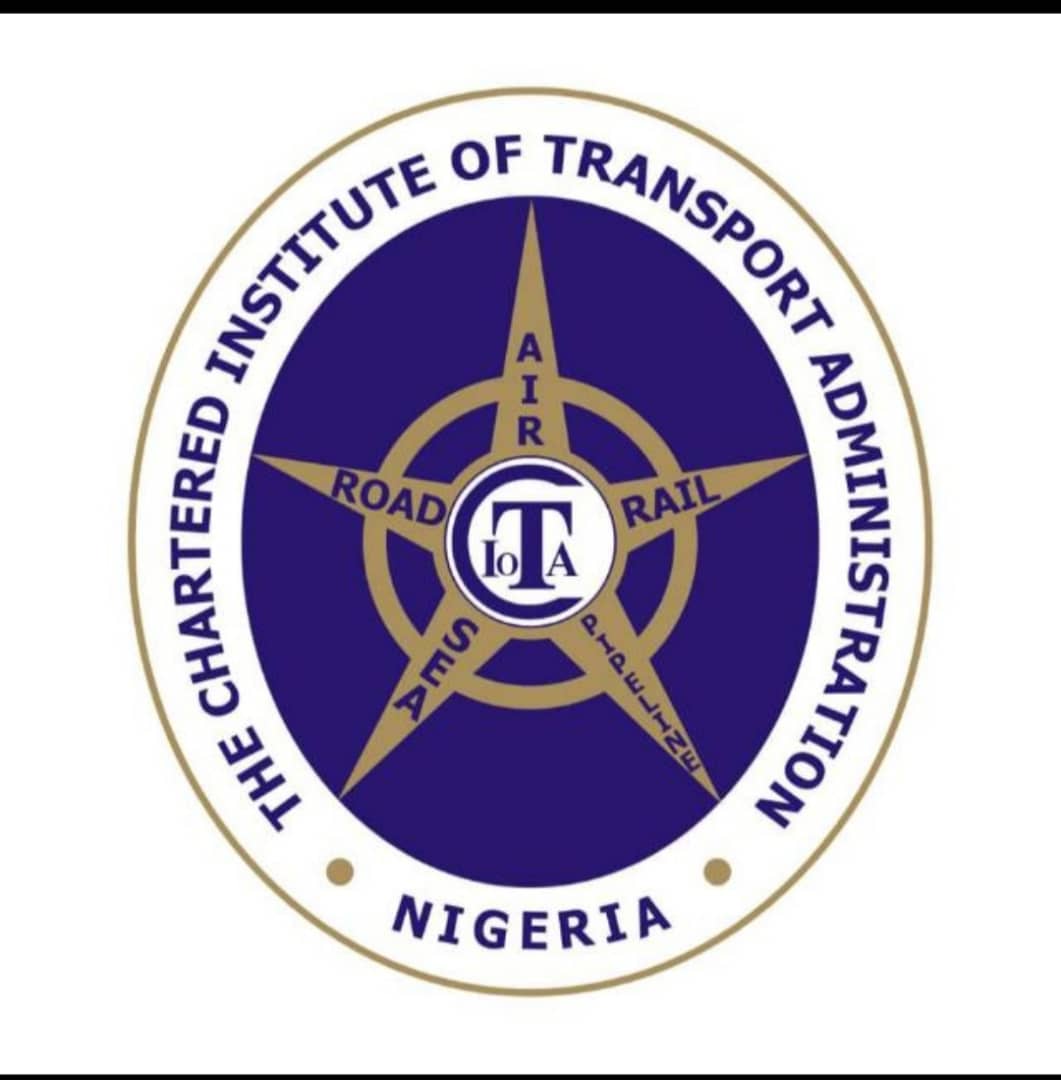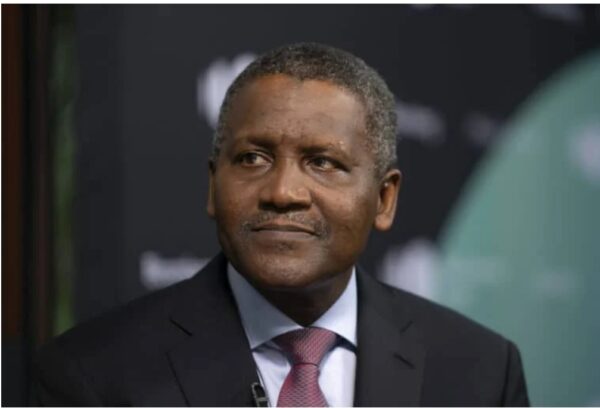
•Dangote arranges $4.5b for own facility
President Muhammadu Buhari and his Nigerien counterpart, Mahamadou Issoufou, yesterday in Abuja signed a memorandum of understanding (MOU) for the establishment of a new refinery in Katsina State. The proposed facility is to come on stream in the next two years and would produce 150,000 barrels per day (bpd).
Buhari, who also constituted a steering committee, chaired by the Minister of State for Petroleum, Ibe Kachikwu, and a senior level joint technical team with a December 2018 deadline for the unveiling of a roadmap for the project, said Nigeria must aggressively pursue its aspiration for product self-sufficiency.
The president is optimistic that the proximity of the location to Niger would aid current frontier exploration efforts in the North. He also expects that the development would result in the provision of additional hydrocarbon inflow to the corridors of the proposed pipeline and a potential refinery around Kaduna axis.
According to him, Nigeria and Niger have had excellent relations, sharing common cultural and historical ties for decades.
With the new agreement, Buhari, who doubles as the Minister of Petroleum, believes that the deal would be a “win-win” situation for the two nations.
He disclosed that the project would be private sector-driven with full support of the government of both countries.
The president hinted that expressions of interest from prospective investors had started trooping in.
His words: “The initiative will not only provide a reliable market for the stranded crude from Niger Republic but will also provide petroleum products for Nigeria, as it aggressively pursues its aspiration for petroleum product self-sufficiency.
“In addition, it is my hope that the current frontier exploration efforts in the northern part of the country (Chad Basin, Gongola Basin, Sokoto Basin, Bida Basin and Benue trough) will also result in the provision of additional hydrocarbon inflow to the corridors of the proposed pipeline and a potential refinery around Kaduna axis.”
He added: “It is my expectation that by December 2018, this group will come up with a detailed roadmap and guidelines leading to actual execution of the projects.”
Buhari noted that the roadmap would cover bankable feasibility studies for the refinery and pipelines; optimal site; pipeline routes and details; security plan as well as elected consortia of investors for both projects.
Issoufou, on his part, said his country sees the refinery as a way of strengthening ties with Nigeria, harping on the need to grow intra-African trade relations.
He insisted that the nations on the continent cannot develop unless they work on processing raw materials instead of exporting them.
The Nigerien president urged his host to continue to play key roles as Africa’s leader by ensuring that the oil and gas sector is adequately developed.
He said his country currently produces about 20, 000 barrels of crude oil per day but looks forward to increasing the output to between 50,000 and 90,000bpd when the facility becomes operational.
Kachikwu maintained that there was no going back on meeting petroleum product sufficiency in Nigeria, adding that the proposed facility would foster the development of small and medium scale industries through backward and forward linkages.
However, the President of Dangote Group, Aliko Dangote, has arranged more than $4.5 billion in debt financing for his refinery project billed to begin production in early 2020.
The Africa’s richest man is building the world’s largest single oil facility with a capacity of 650,00bdp to help reduce the country’s dependence on imported petroleum.
Despite being a crude oil exporter, Nigeria imports the bulk of its petroleum products owing to a lack of domestic refining capacity.
According to Reuters, lenders would commit about $3.15 billion, with the World Bank’s private sector arm providing $150 million. Dangote was quoted as saying that he was investing more than 60 per cent from his own cash flow.
Dangote Group has said Standard Chartered Bank was also arranging funds for the project.








